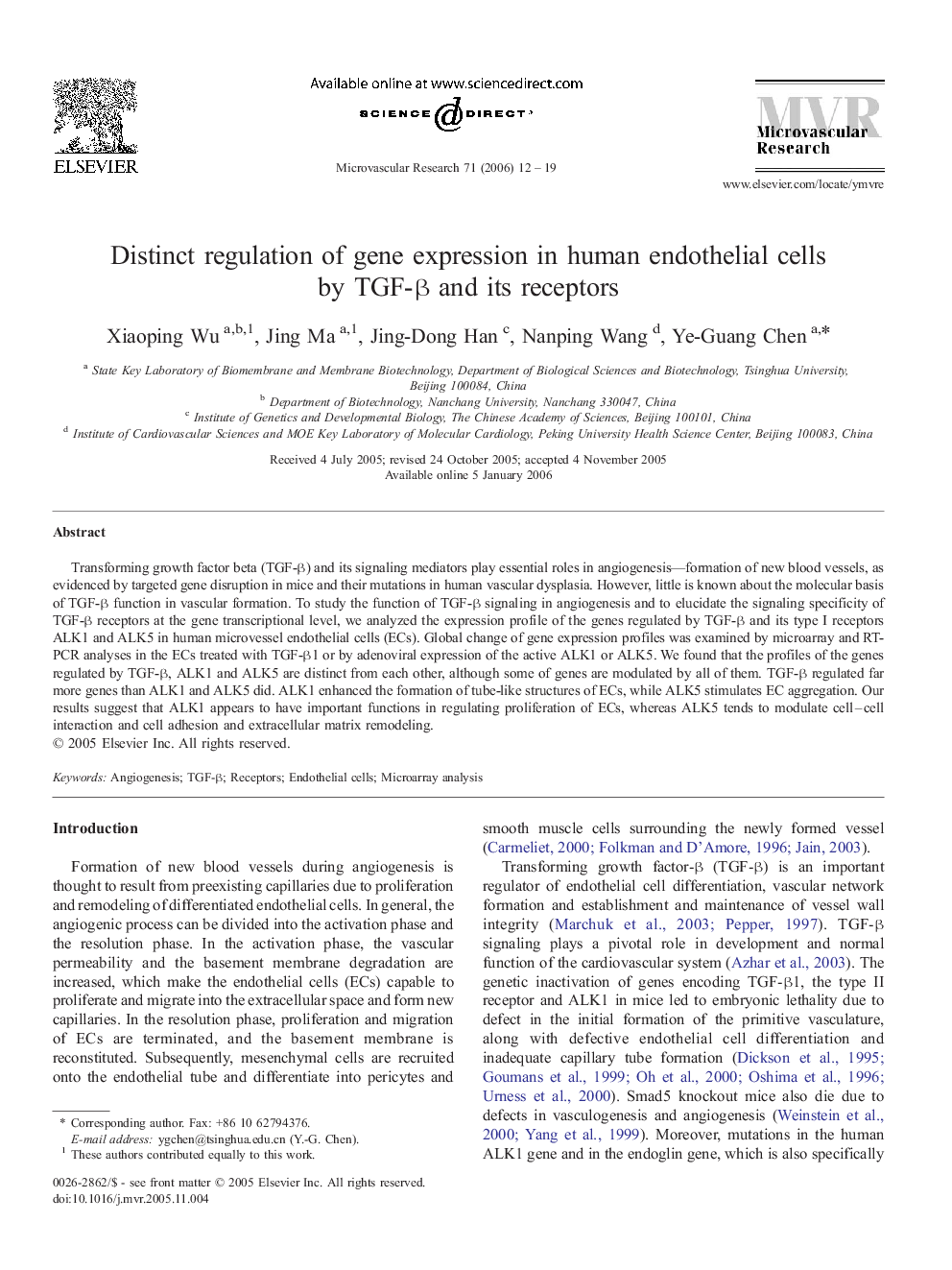| Article ID | Journal | Published Year | Pages | File Type |
|---|---|---|---|---|
| 1995474 | Microvascular Research | 2006 | 8 Pages |
Transforming growth factor beta (TGF-β) and its signaling mediators play essential roles in angiogenesis—formation of new blood vessels, as evidenced by targeted gene disruption in mice and their mutations in human vascular dysplasia. However, little is known about the molecular basis of TGF-β function in vascular formation. To study the function of TGF-β signaling in angiogenesis and to elucidate the signaling specificity of TGF-β receptors at the gene transcriptional level, we analyzed the expression profile of the genes regulated by TGF-β and its type I receptors ALK1 and ALK5 in human microvessel endothelial cells (ECs). Global change of gene expression profiles was examined by microarray and RT-PCR analyses in the ECs treated with TGF-β1 or by adenoviral expression of the active ALK1 or ALK5. We found that the profiles of the genes regulated by TGF-β, ALK1 and ALK5 are distinct from each other, although some of genes are modulated by all of them. TGF-β regulated far more genes than ALK1 and ALK5 did. ALK1 enhanced the formation of tube-like structures of ECs, while ALK5 stimulates EC aggregation. Our results suggest that ALK1 appears to have important functions in regulating proliferation of ECs, whereas ALK5 tends to modulate cell–cell interaction and cell adhesion and extracellular matrix remodeling.
